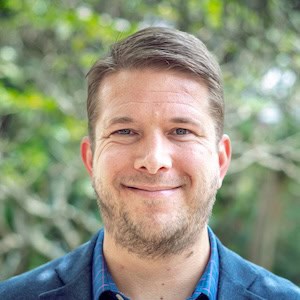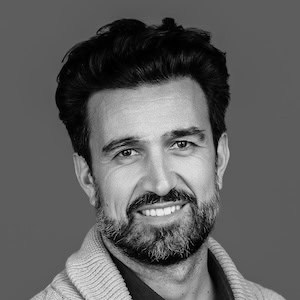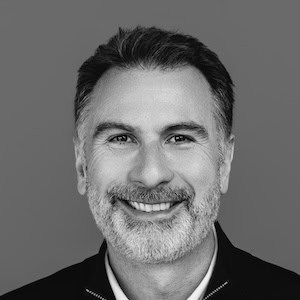-
All AI Work is Not Created Equal: Building an Ecosystem That Supports Not Just Jobs, But Employment in East Africa
With the global artificial intelligence market expected to grow to almost $830 billion by 2030, the impact of AI on employment in emerging markets is a topic of growing interest — and concern. Wendy Gonzalez at Sama explores the advantages and disadvantages of different types of AI work, and argues that the industry must build ecosystems that can support not just low-paid, crowdsourced contract jobs, but stable, formal employment if it hopes to generate lasting economic growth in regions like East Africa.
- Categories
- Technology
-
Rethinking Credit Scoring: A Pay-As-You-Go Pioneer Explores Innovative Solutions in Africa
The ability to make life-changing purchases — from buying a home to setting up a business — usually relies upon acquiring credit. But as Mansoor Hamayun at Bboxx explains, in many emerging markets, it’s incredibly difficult for the average citizen to obtain a credit score. He explores the obstacles to credit scoring in Africa, and discusses how Pay-As-You-Go financing of solar products — combined with innovative approaches to consumer subsidies — can be leveraged to boost access to credit scores and essential financial services in underserved communities.
- Categories
- Finance
-
Transparent Sustainability: A Free Tool Aims to Empower Retail Investors to Align Their Investments with Their Convictions
The growing demand for sustainable investments has brought a greater degree of scrutiny to the industry, as it attempts to address rising concerns about greenwashing. But as Shaan Madhavji and Anna Helena Chaim at Impaakt point out, many investors still have a lack of knowledge about the true impacts of their investments. They explain how Impaakt's free “How Sustainable to Me?” tool provides retail investors with transparent impact data that allows them to align their investments with their values.
- Categories
- Environment, Investing
-
The Implications of Global Health Equity: Why Pursuing Equity May Actually Harm the Poor
The concept of global health equity has gained traction in universities, governments, global health organizations and even some businesses. But Paul Clyde at the William Davidson Institute argues that it's important to think carefully about the implications of this goal before pursuing it. He explains how improvements to healthcare in poor populations often begin with improvements in wealthier populations, and how actions taken or discouraged in the name of equity can do more harm than good in poor communities.
- Categories
- Health Care
-
African Tech Titans vs. Red Tape: How Striking the Right Regulatory Balance Can Advance the Continent’s Economic Future
Africa has emerged as a pivotal player in the global tech marketplace, with a digital economy that’s projected to grow to $712 billion by 2050. Yet according to Seyi Ebenezer at Payaza Africa Ltd., this potential is threatened by regulatory frameworks that struggle to keep pace with the rapid evolution of technology. He explores how overly stringent regulation is impeding business and economic growth in the region, and how regulators can foster innovation while protecting consumers and other stakeholders.
- Categories
- Finance, Technology
-
Solving the Educational Disparity in India: A Scalable Solution Leverages AI and Behavior Change to Reach Underserved Communities
Around 37 million Indian children lack access to any form of early education service. Vishal Sunil and Sushmita Roy at Rocket Learning discuss how their organization is addressing this issue through its learning platform, which leverages AI technology and WhatsApp to provide free educational tools to children and parents, while offering training and other resources to the daycare workers who play a key role in the country’s early childhood development landscape.
- Categories
- Education, Technology
-
A Hidden Reason for Business Failure in Social Enterprise: Exploring Innovative Talent Solutions in Frontier Markets
Social enterprises need extraordinary talent and leadership to navigate the challenges of doing business in frontier markets. As Paul Breloff at Shortlist and Daniel Waldron and Coco Lim at Acumen explain, failure to find the right talent is a leading factor in company and investment failure — and top talent is in short supply, and often comes at a steep cost. They share learnings from Acumen and Shortlist's shared experience recruiting and retaining talent, exploring some innovative approaches that go beyond traditional full-time structures.
- Categories
- Social Enterprise
-
Transforming Startup Financing: The Rise of Venture Debt and Alternative Finance in MENA
The venture capital ecosystem in the Middle East and Northern Africa (MENA) experienced a 23% drop in funding and a 34% decline in the number of transactions closed in 2023. But as Reem Goussous at Village Capital and Dunya Bashiti at Capifly explain, alternative capital solutions are emerging to fill the gap — including venture debt, which reached $757 million in the region last year, a staggering 50-fold increase from 2020 levels. They explore how venture debt provides an important financing tool for early-stage, high-growth startups in MENA, enabling them to access funding without diluting their equity.
- Categories
- Investing










